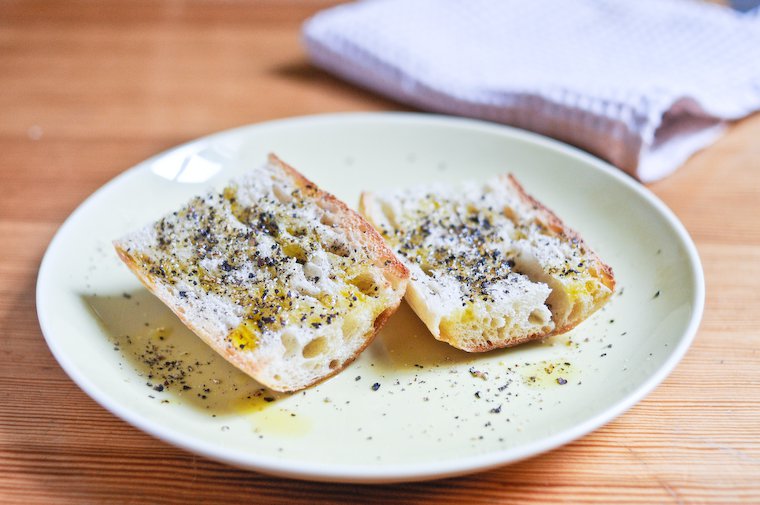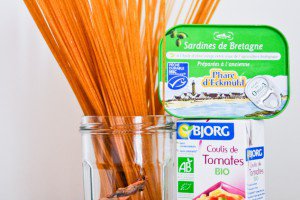“La découverte d’un mets nouveau fait plus pour le bonheur du genre humain que la découverte d’une étoile.”
The discovery of a new dish does more for human happiness than the discovery of a star*: this aphorism is the ninth of twenty that Jean Anthelme Brillat-Savarin lists as a prologue** to his book, The Physiology of Taste.
It is not quite as famous as aphorism number four (“Dis-moi ce que tu manges, je te dirai ce que tu es,” usually translated to “you are what you eat”) but it rings just as true, and I was reminded of it a few days ago, when Maxence and I jointly discovered our new favorite instant snack.
A drizzle of very good olive oil from Provence and an enthusiastic grind of a fruity black pepper on a section of baguette sliced in two resulted in a mind-blowingly good tartine.
We were hungry and we had some fresh baguette, but neither butter nor cheese on hand. We did, however, have a little canister of very good olive oil from Provence, and a pepper mill newly stocked with a subtle and fruity black pepper. A drizzle of one and an enthusiastic grind of the other on a section of baguette sliced in two resulted in a mind-blowingly good tartine.
It is simple in the extreme, and I’m certainly not claiming we are the first to think of it. But in my (almost) thirty-two years on this planet I had never eaten exactly this combination of ingredients in exactly this form, so in my universe it is very much like (or even better than, Jean Anthelme would say) the discovery of a new star.
To be specific, the baguette was a Piccola, our long-time favorite from Coquelicot. The olive oil is Hortense Meynier’s, as sold by Ecomusée L’Olivier (formerly Première Pression Provence). The black pepper is an Indian one from Malabar.
What about you: any recent stellar food discovery to share?
* M.F.K. Fisher‘s translation.
** Brillat-Savarin actually uses the term prolégomènes (prolegomena in English), which I wish people used more frequently, possibly as a name for their baby girl.















